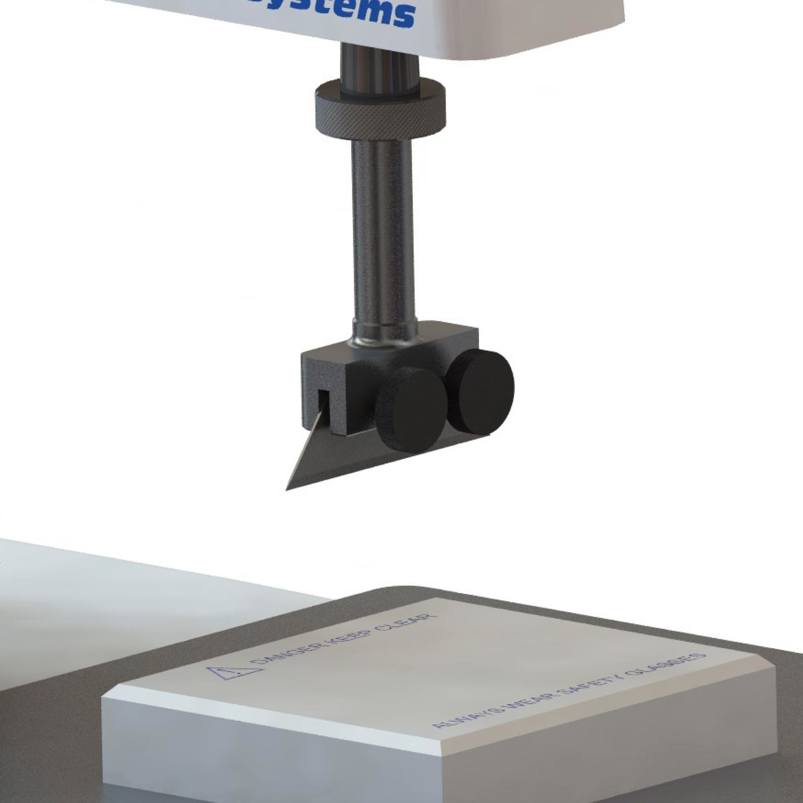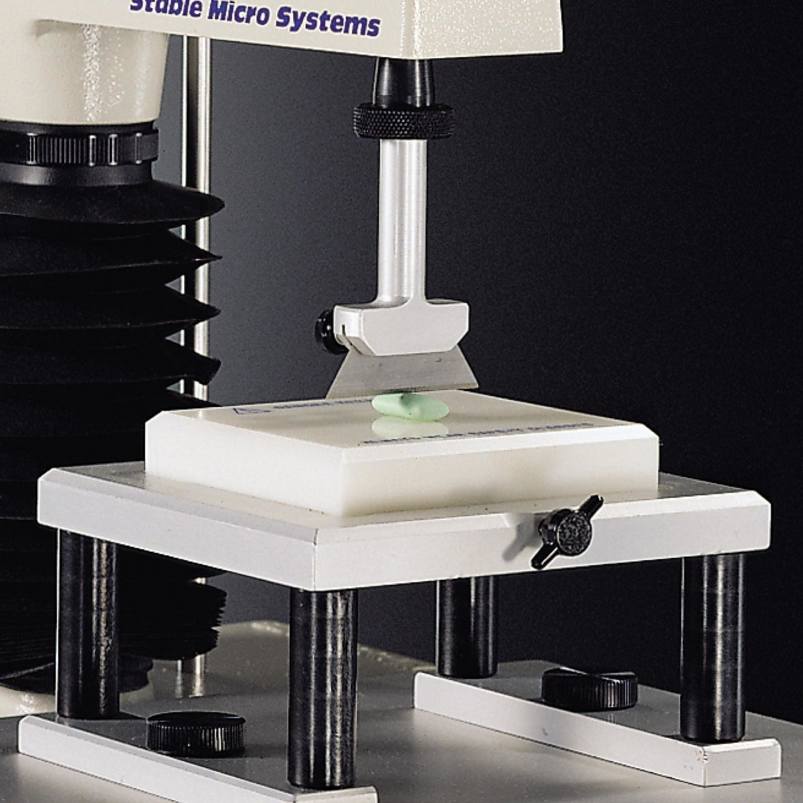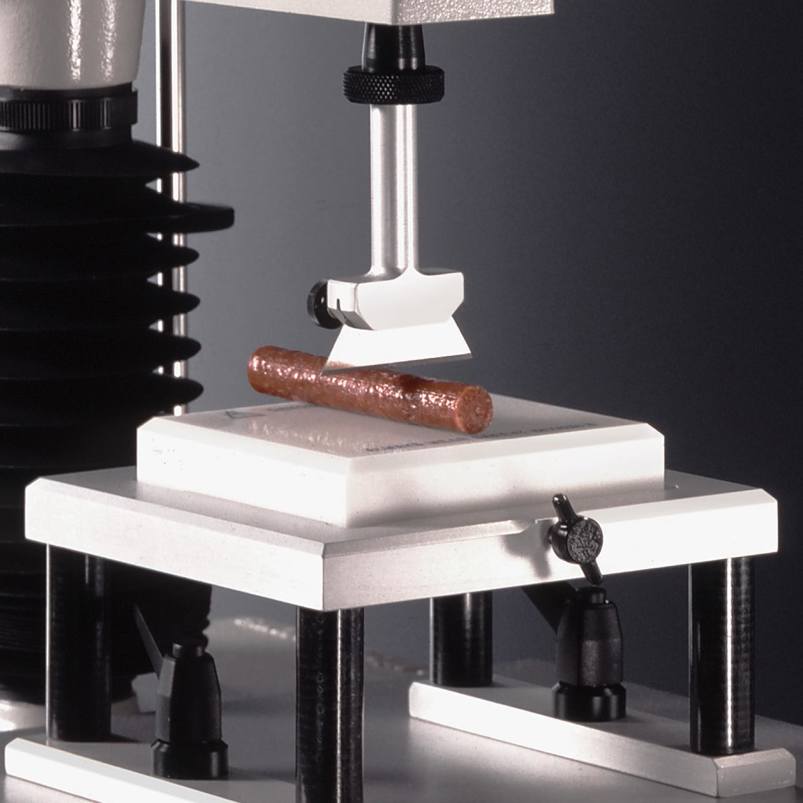Product overview
This attachment can be used to cut through a sample which is solid and self-supporting. If you consider that if the upper set of teeth were straightened they would effectively form a knife edge – using any form of blade can therefore represent the force to cut or 'bite' into a sample. The thin, sharp edge of the Craft Knife is more ideal for the cutting of small or hard pieces such as nuts or seeds or for shearing of very soft or brittle products without the introduction of compression. It is also the attachment of choice when interested in measuring differences in structure of a multi-layered product e.g. samples with hard coatings or laminated samples such as pastry. A graph showing numerous peaks and troughs would reflect the shearing or breaking of groups of pastry layers (lamellae), which would otherwise be lost using a standard blade set.
A high-density polythene cutting block is provided to accommodate the sample. The cutting block is used either with the Heavy Duty Platform or placed directly on the bed of the Texture Analyser. 10 spare blades are also provided. Due to its limited size, only samples of up to 50mm wide can be tested and the depth of cutting is also limited. An Extended Craft Knife is otherwise suggested for using the same testing principle on taller and wider samples.
Note: Protective goggles or other eye protection are recommended when using this attachment.
How does the Craft Knife Adapter work?
Ideal sample form
Samples which are solid and self-supporting. Small, hard pieces, brittle products or where a difference in structure of the product is able to be measured.
Benefits and limitations
- The blade thickness (0.6mm) enables precision cutting of very small samples e.g. seeds, nuts or shearing without compression of very soft or brittle samples.
- These sharp blades also enable the cutting of very hard items e.g. confectionery, industrial products.
- This blade is the 'disposable' option if blade blunting is a concern.
- Limited to the stroke of the blade.
Optional extras
Extra set of 50 spare blades – A/CBL
Technical information
Installation
Full installation instructions are provided within the Education Zone of the latest Exponent/Connect software version and on the technical information sheet accompanying this product.
Chemical compatibility
Stable Micro Systems probes and attachments are commonly made from four materials: anodised aluminium (AA6082 T6), stainless steel (316 T), Delrin (acetyl copolymer) and Perspex (polycarbonate).
In general use, probes and attachments made from these materials will be suitable for testing food products and inert non-food materials.
The four materials listed above are not universally resistant to all types of chemicals and as such the compatibility of the probe/attachment material with the product (to be tested) must be established to prevent damage to the probes and attachments. If the compatibility of the product with the probe is unknown to the customer then the chemical information about the product (Material Safety Data Sheet or Product Data Sheet) should be submitted to Stable Micro Systems. Stable Micro Systems will then assess the suitability of the probe/attachment material for use with the product and advise accordingly. If this advice is not sought then Stable Micro Systems will not accept liability for probes/attachments damaged by chemical attack from the product being tested.
Cleaning and maintenance
All probes and attachments may be cleaned in warm (or hand hot) water using a mild detergent. A soft brush may be used but abrasive cleaning aids should be avoided. Stable Micro Systems products should not be microwaved or cleaned in a dishwasher.
Screw threads should be lightly lubricated after drying using a light lubricant, e.g. petroleum jelly, mineral oil. This will aid the fitting and unscrewing of the item. Each component of a probe or attachment should be wrapped separately when stored, to avoid scratching or chipping. This will safeguard against any unnecessary damage to the accessory.




